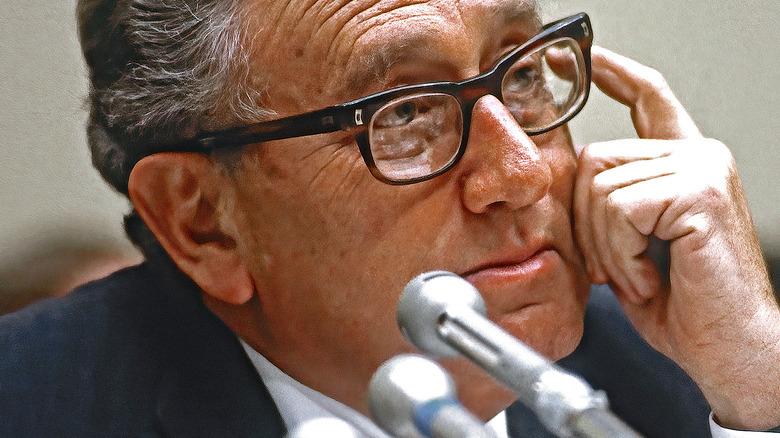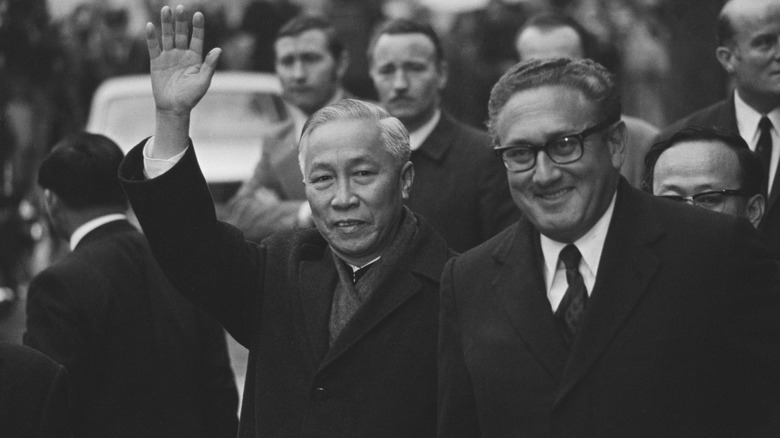Why Henry Kissinger's Nobel Peace Prize Was So Controversial
Despite having the word "peace" as part of its name, the prestigious Nobel Peace Prize is sometimes contentious. One of the most controversial decisions in the award's history came in 1973 when the prize was given jointly to the United States Secretary of State Henry Kissinger and North Vietnamese diplomat Le Duc Tho. Both men had been key figures in the negotiation of the Paris Peace Accords which began in 1968, but in 1970 they began meeting secretly for talks about ending the conflict after the formal peace meetings dragged on without a solution, per Encyclopedia.
Finally, in October 1972 a cease-fire was enacted but only lasted a couple of months and it did not end the Vietnam War. The U.S. dropped a series of bombs on North Vietnam in December 1972 and even though a formal agreement was finally reached on January 27, 1973, North and South Vietnam continued fighting until the fall of Saigon on April 30, 1975.
Due to the brief break in the conflict, Kissinger and Le Duc Tho were nominated for a "Bombs and Cease-Fire in Vietnam" Nobel Peace Prize in 1973. The decision to award was highly controversial, with two Nobel Peace Prize committee members having voted against giving the award to Kissinger resigning in protest (via CNBC). Kissinger, who died at 100 years old on November 29, 2023, accepted the award, but Tho, who was the first Asian recipient of the Nobel Peace Prize, rejected it.
Kissinger's controversial decision during negotiations
The German-born Henry Kissinger was a key figure in the Nixon administration, which itself is remembered for having weathered its fair share of controversies – some successfully, others not so much. Perhaps the biggest sticking point of the Nobel Peace Prize controversy was that amid the negotiations to broker a ceasefire, Kissinger authorized a bombing raid on Hanoi, per CNBC. This was one of the reasons an op-ed in The New York Times would mockingly refer to the award as the Nobel War Prize.
In 1973, Kissinger's co-recipient Le Duc Tho was also critical of the decision and rejected the offer in a written reply that read in part, "peace has not yet really been established in South Vietnam ... Since the signing of the Paris agreement, the United States and the Saigon Administration continue in grave violation of a number of key clauses of this agreement. The Saigon Administration, aided and encouraged by the United States, continues its acts of war," (via The NYT).
As Secretary of State, Kissinger would authorize bombing raids in Cambodia meant to target the Khmer Rouge and the North Vietnamese. Meanwhile, Le Duc Tho was still working in government when North Vietnamese forces took Saigon, unifying the country and bringing an end to the war in 1975.

